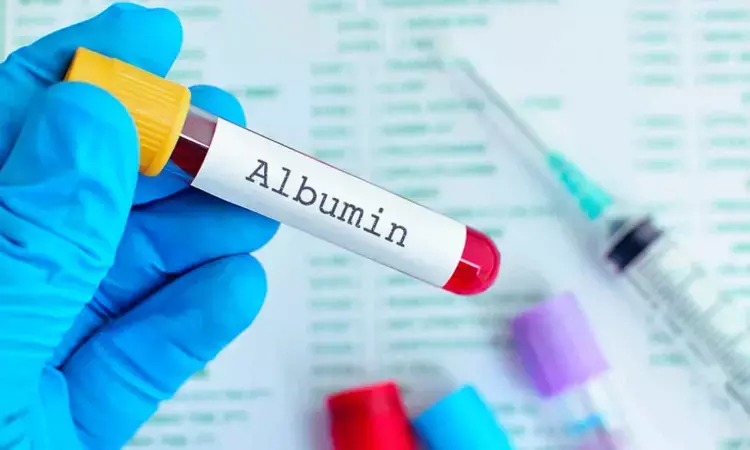- Home
- Medical news & Guidelines
- Anesthesiology
- Cardiology and CTVS
- Critical Care
- Dentistry
- Dermatology
- Diabetes and Endocrinology
- ENT
- Gastroenterology
- Medicine
- Nephrology
- Neurology
- Obstretics-Gynaecology
- Oncology
- Ophthalmology
- Orthopaedics
- Pediatrics-Neonatology
- Psychiatry
- Pulmonology
- Radiology
- Surgery
- Urology
- Laboratory Medicine
- Diet
- Nursing
- Paramedical
- Physiotherapy
- Health news
- Fact Check
- Bone Health Fact Check
- Brain Health Fact Check
- Cancer Related Fact Check
- Child Care Fact Check
- Dental and oral health fact check
- Diabetes and metabolic health fact check
- Diet and Nutrition Fact Check
- Eye and ENT Care Fact Check
- Fitness fact check
- Gut health fact check
- Heart health fact check
- Kidney health fact check
- Medical education fact check
- Men's health fact check
- Respiratory fact check
- Skin and hair care fact check
- Vaccine and Immunization fact check
- Women's health fact check
- AYUSH
- State News
- Andaman and Nicobar Islands
- Andhra Pradesh
- Arunachal Pradesh
- Assam
- Bihar
- Chandigarh
- Chattisgarh
- Dadra and Nagar Haveli
- Daman and Diu
- Delhi
- Goa
- Gujarat
- Haryana
- Himachal Pradesh
- Jammu & Kashmir
- Jharkhand
- Karnataka
- Kerala
- Ladakh
- Lakshadweep
- Madhya Pradesh
- Maharashtra
- Manipur
- Meghalaya
- Mizoram
- Nagaland
- Odisha
- Puducherry
- Punjab
- Rajasthan
- Sikkim
- Tamil Nadu
- Telangana
- Tripura
- Uttar Pradesh
- Uttrakhand
- West Bengal
- Medical Education
- Industry
Early Albumin Use in Septic Shock May Increase Risk of Renal Replacement Therapy and Mortality: Study

Researchers have determined that the use of early doses of albumin in patients presenting with septic shock and renal impairment may be linked to an increased incidence of renal replacement therapy (RRT) or in-hospital mortality. A recent study was published in the journal CHEST conducted by Asad E. and colleagues.
Septic shock is a life-threatening syndrome that frequently leads to multi-organ failure with acute kidney injury, significantly raising mortality rate and the need for RRT. Albumin infusions are given in nearly all the patients, as it is thought to have helped resuscitate blood volume, and thus better circulatory status. However, it is not well known what the renal effects of albumin would be in the context of septic shock with pre-existing impaired kidneys. To find out if early administration within 24 hours of admission reduces RRT or in-hospital mortality in this risk group, this study was performed. The analysis differentiated iso-oncotic (5%) and hyperoncotic (25%) albumin to determine if there were differences in risk profiles.
A retrospective, inverse probability-of-treatment weighted cohort study was conducted using 220 hospitals in geographically dispersed areas across the United States. The study population consisted of adult patients who were admitted with septic shock and had kidney impairment as evidenced by an eGFR measured at the time of hospital admission. The final cohort consisted of 9,988 patients classified as having received albumin within 24 hours of admission or not having received albumin at all during their hospital admission period.
Patients treated with albumin were further divided based on the solution of albumin they received-5% or 25%. The incidence of RRT or in-hospital death was the main composite endpoint of interest, and comparisons between groups were adjusted for confounding factors with inverse probability-of-treatment weighting.
Below are the key results reported by the authors on the impact of albumin use on outcomes in patients with septic shock and kidney impairment:
• From 9,988 patients overall, albumin infusions were not administered to 7,929 (79.4%), whereas 2,059 (20.6%) received albumin within the first 24 h of admission.
• The mean admission eGFR was 32 mL/min/1.73m², indicating severe impairment of the kidneys.
• The composite endpoint of RRT or in-hospital mortality was present in 33.8% of the patients not receiving albumin compared with 39.7% of the patients receiving albumin (OR 1.29, 95% CI 1.14 – 1.47, p<0.001), with a significantly greater increase in risk associated with albumin use.
• When analysed by albumin concentration, there was no significant difference in the composite outcome when iso-oncotic (5%) albumin was used (OR 1.07, 95% CI 0.84–1.37). The risk was significantly higher with hyperoncotic (25%) albumin (OR 1.43, 95% CI 1.16–1.76).
• These results indicate that while albumin administration to septic shock patients with renal injury worsens their outcomes, the biggest increase in risk is observed with hyperoncotic albumin, which inflicts an even greater injurious insult on renal function and survival.
Early albumin administration has been associated with an increased need for RRT and in-hospital mortality in patients presenting with septic shock and impaired kidney function at admission. These findings indicate that in the setting of impaired renal function, the potential nefarious effects of hyperoncotic albumin on kidneys may outweigh the benefits, and caution should be exercised before administering albumin therapy in such patients afflicted with septic shock.
Reference:
Patanwala, A. E., Flannery, A. H., Mehta, H. B., Hills, T. E., McArthur, C. J., & Erstad, B. L. (2024). Comparative effectiveness of albumin versus no albumin on renal replacement therapy and mortality in patients with septic shock and renal impairment. Chest. https://doi.org/10.1016/j.chest.2024.10.012
Dr Riya Dave has completed dentistry from Gujarat University in 2022. She is a dentist and accomplished medical and scientific writer known for her commitment to bridging the gap between clinical expertise and accessible healthcare information. She has been actively involved in writing blogs related to health and wellness.
Dr Kamal Kant Kohli-MBBS, DTCD- a chest specialist with more than 30 years of practice and a flair for writing clinical articles, Dr Kamal Kant Kohli joined Medical Dialogues as a Chief Editor of Medical News. Besides writing articles, as an editor, he proofreads and verifies all the medical content published on Medical Dialogues including those coming from journals, studies,medical conferences,guidelines etc. Email: drkohli@medicaldialogues.in. Contact no. 011-43720751


